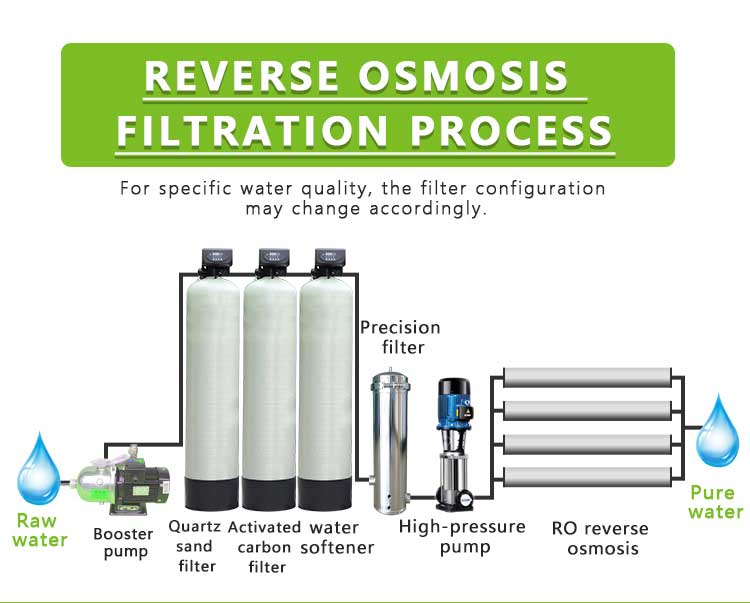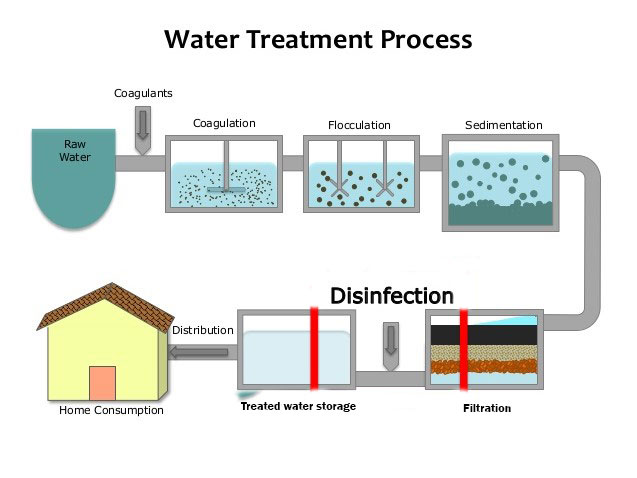Checking Out Water Technology Startups: How They Reinvent Sustainable Solutions
Water Technology start-ups are becoming vital gamers in the quest for sustainable services to global water problems. These companies utilize cutting-edge innovations to improve water performance and administration. Their contributions attend to pushing difficulties such as scarcity and contamination. Regardless of their potential, they encounter various barriers that might impact their success. Comprehending these characteristics clarifies the future of water sustainability and the duty these startups may play in forming it.
The Value of Water Technology in Today's Globe
As global water shortage increases, the importance of water Technology becomes progressively evident. Water Technology plays an important duty in dealing with the obstacles posed by raising and lessening freshwater sources need. It encompasses a wide series of technologies, consisting of advanced purification systems, wastewater therapy innovations, and clever irrigation services. These advancements not only boost the performance of water use yet also promote sustainable methods throughout different sectors, including agriculture, market, and city growth.
The relevance of water Technology prolongs past resource management. It cultivates durability versus environment adjustment impacts, such as droughts and floodings, by offering flexible options for water conservation and monitoring. Additionally, it sustains public wellness by making certain access to safe and clean alcohol consumption water. As the globe faces growing water-related obstacles, the combination of innovative water modern technologies is important for promoting lasting advancement and securing water availability for future generations.
Cutting-edge Solutions From Water Tech Startups
While conventional methods to water management have served their objective, a new wave of water technology startups is reinventing the market with cutting-edge options (Water Technology Startups). These firms leverage cutting-edge innovations to attend to pushing water concerns, such as deficiency, contamination, and ineffective distribution. Lots of start-ups utilize artificial intelligence and equipment learning to optimize water usage and predict need, leading to more lasting methods
Furthermore, a number of firms focus on creating advanced filtering systems that get rid of contaminants and make water safe for usage. Others check out decentralized water treatment innovations, allowing areas to handle their water resources better. Moreover, some startups are pioneering smart watering solutions that lessen water waste in agriculture, promoting ecological conservation.
Case Studies: Successful Water Technology Startups
Many water Technology startups have actually become leaders in attending to international water obstacles through innovative approaches. One significant instance is Xylem, which concentrates on water analytics and smart infrastructure to optimize water use and decrease waste. Their solutions have been executed in different communities, demonstrating substantial renovations in water monitoring efficiency.
One more successful startup, Zero Mass Water, has developed solar-powered hydropanels that extract water vapor from the air, supplying lasting drinking water in arid areas. Water Technology Startups. This Technology has been deployed in numerous countries, making sure neighborhoods have access to clean water
Lastly, AquaVenture Holdings operates a varied profile of water-as-a-service remedies, resolving water deficiency with desalination and wastewater treatment. Their jobs have proven essential in areas encountering serious water shortages, showcasing the possibility of ingenious water innovations to create long-term, positive impacts. These instance research studies highlight the transformative potential of start-ups in the water Technology industry.
The Duty of Smart Technology in Water Administration
Smart Technology plays a vital role in modern-day water management by leveraging IoT applications to maximize resource use. Data analytics boosts effectiveness by providing workable insights, while remote tracking solutions allow real-time oversight of water systems. With each other, these innovations change how water is taken care of, promoting sustainability and functional effectiveness.
IoT Applications in Water
As water deficiency and management obstacles magnify around the world, the combination of Net of Things (IoT) applications has become a critical option in optimizing water resources. IoT Technology helps with real-time surveillance and analysis of water systems, making it possible for more effective use and management. Sensors deployed in numerous water infrastructures can track high quality, circulation prices, and leak, providing useful information to stakeholders. This information empowers utilities and consumers to make enlightened decisions, decreasing waste and enhancing preservation initiatives. Additionally, smart irrigation systems use IoT to enhance water distribution for agriculture, guaranteeing that crops get the right amount of water at the ideal time. Overall, IoT applications are transforming conventional water administration methods, promoting sustainability and durability in water source systems.
Information Analytics for Effectiveness
Taking advantage of information analytics is crucial for boosting performance in water monitoring. Water Technology start-ups are significantly making use of innovative analytics to maximize source allowance and minimize waste. By examining data from different sources, these startups can identify patterns and fads that educate far better decision-making. Anticipating analytics can anticipate water demand, allowing energies to change supply appropriately, thereby minimizing surpluses and scarcities. In addition, real-time data processing makes it possible for the instant detection of leakages and ineffectiveness within distribution systems, substantially minimizing operational prices. Data-driven insights encourage stakeholders to execute targeted preservation methods, fostering lasting practices. Basically, incorporating information analytics right into water management not just streamlines procedures but additionally promotes long-lasting sustainability in water resource usage.
Remote Surveillance Solutions
While conventional water monitoring systems typically battle with ineffectiveness, remote monitoring services are changing how water resources are taken care of. These innovative innovations make it possible for real-time data collection and evaluation, permitting stakeholders to keep track of water top quality, flow rates, and use patterns from afar. Making use of sensors and IoT gadgets, remote surveillance provides instant understandings that promote proactive decision-making. This shift not just boosts operational performance this link but also promotes sustainability by reducing water waste and enhancing resource allocation. Additionally, remote tracking systems can recognize possible issues before they escalate, consequently decreasing the risk of contamination or infrastructure failure. As water Technology startups continue to establish these options, the sector is positioned for substantial advancements in sustainable water management practices.
Challenges Facing Water Technology Startups
Water Technology startups encounter significant difficulties that can impede their growth and success. Key issues include securing sufficient funding, maneuvering through complex regulatory environments, and completing in a jampacked industry. These barriers call for critical preparation and technology to get over.
Financing and Investment Obstacles
Although technology in water Technology holds tremendous capacity for resolving worldwide difficulties, startups in this sector frequently face significant financing and financial investment obstacles. Many financiers continue to be cautious, regarding the water market as high-risk as a result of its complicated governing landscape and lengthy development timelines. In addition, startups often battle to demonstrate prompt earnings, which can deter possible backers. Conventional equity capital may ignore water innovation, preferring industries with quicker returns, such as technology or consumer products. Protecting gives and government funding can be competitive and lengthy, further complicating financial stability. As a result, several ingenious water Technology startups discover themselves in a ragged edge, needing imaginative funding methods to browse these financial barriers and accomplish their objectives
Governing Conformity Issues
Steering regulatory compliance is a substantial obstacle for startups in the water Technology sector, as they should come to grips with a myriad of neighborhood, nationwide, and global regulations. These policies commonly incorporate water top quality criteria, environmental management laws, and safety protocols, which can vary widely across jurisdictions. Startups might locate it difficult to navigate this facility landscape, specifically when scaling procedures or getting in brand-new markets. The prices connected with conformity can be considerable, drawing away resources away from development and product development. Additionally, delays in obtaining necessary permits or certifications can impede growth and market entry. Consequently, a robust understanding of regulatory structures is essential for these startups to guarantee lasting procedures and avoid possible legal repercussions.
Market Competitors Dynamics
As water Technology start-ups emerge in a competitive landscape, they encounter various challenges that can restrain their development and innovation. Developed business often control the market, leveraging sources and experience to preserve their placements. Startups battle with minimal funding, which limits study and advancement capacities, making it tough to compete on Technology and prices. Additionally, the quickly progressing nature of water modern technologies demands consistent adjustment, more straining start-up resources. Regulatory obstacles can complicate market entrance, as conformity with environmental requirements is crucial yet pricey. Finally, bring in proficient talent in hop over to these guys a particular niche field provides an additional challenge, as bigger firms might offer even more enticing employment bundles. As a result, these variables create an intricate setting for water Technology startups intending to be successful.

The Future of Water Technology and Sustainability

The future of water Technology will likely concentrate on incorporating synthetic knowledge and information analytics to optimize water circulation and usage patterns. By utilizing real-time information, business can predict shortages and take care of resources better. Lasting methods will end up being a cornerstone of the sector, motivating circular economic situations where water is reused and treated. Inevitably, the continued evolution of water Technology will certainly be important in creating durable infrastructures capable of fulfilling the difficulties posed by environment change and populace development while promoting ecological stewardship.
Frequently Asked Inquiries
What Are the Secret Metrics for Evaluating Water Technology Startups?
Secret metrics for reviewing water Technology startups consist of market possibility, scalability, client procurement costs, income development, technology advancement, regulatory compliance, environmental influence, affordable advantage, and team expertise, all important for establishing long-term practicality and success.
Exactly How Can People Assistance Water Technology Innovations?
People can sustain water Technology innovations by purchasing startups, promoting for plan adjustments, getting involved in community initiatives, sharing knowledge regarding sustainable methods, and advertising recognition of water concerns via local events and social media.
What Are Typical Funding Sources for Water Tech Startups?
Common funding sources for water technology start-ups consist of financial backing, federal government grants, crowdfunding systems, angel capitalists, and corporate partnerships. These economic avenues assist promote innovation and advancement in lasting water management technologies.

Which Industries Advantage Most From Water Technology Advancements?
Industries such as farming, power, production, and local solutions profit substantially from water Technology improvements. These innovations enhance water performance, lower costs, and advertise lasting techniques, ultimately contributing to environmental conservation and resource management.
Exist Any Governing Challenges Certain to Water Innovation?
Yes, water Technology deals with regulatory challenges, including conformity with ecological requirements, permitting procedures, and varying local policies. These intricacies can impede technology and slow down the implementation of brand-new technologies in the water administration sector.
Water Technology start-ups are emerging as essential players in the pursuit for sustainable solutions to international water issues. As international water scarcity intensifies, the significance of water Technology becomes significantly obvious. Others discover decentralized water treatment modern technologies, allowing neighborhoods to handle their water resources a lot more effectively. An additional successful startup, Absolutely no Mass Water, has created solar-powered hydropanels that draw out water vapor from the air, supplying sustainable alcohol consumption water in arid regions. Their tasks have verified vital in regions encountering serious water scarcities, showcasing the potential of ingenious water technologies to produce lasting, positive impacts.